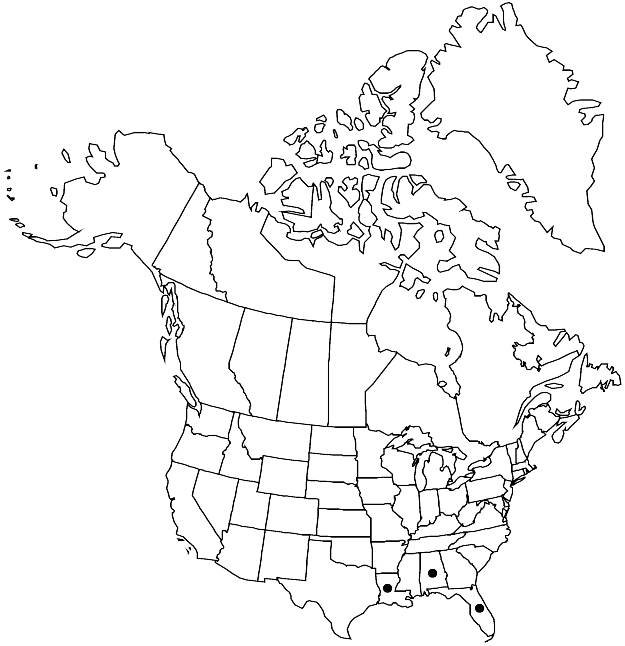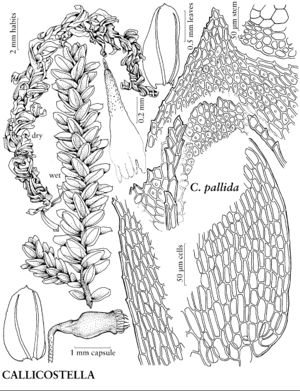Difference between revisions of "Callicostella pallida"
Öfvers. Kongl. Vetensk.-Akad. Förh. 33(4): 27. 1876.
FNA>Volume Importer |
FNA>Volume Importer |
(No difference)
| |
Revision as of 22:02, 16 December 2019
Stems adherent to substrate; epidermal cells small, walls thick; sparsely radiculose in tufts. Leaves differentiated; base not decurrent, long cells from stem may remain attached at insertion; alar region small, turning inward in curve at extreme basal margin; basal laminal cells rectangular, 2–6:1, walls thin, even, somewhat vesiculose mid base; distal cells homogeneous, 8–11 µm wide. Sexual condition appearing to have some male or female buds that also contain both sex organs; perichaetial leaves ovate-lanceolate, 0.8–1 mm, inconspicuous, costa double. Seta 0.6–0.8(–2) cm, papillae broad, low. Capsule 1 mm, neck short; exothecial cells collenchymatous; operculum 0.7–1 mm. Spores 8–11 µm.
Phenology: Capsules mature winter (late Dec–Mar).
Habitat: Moist sites, subaquatic, submerged, moist rock and soil, rotted stumps, logs, limestone rock in springs, wet limy muck, sandy soil, stream banks, water-filled ditches, hammocks, deeply shaded ravines, dark swampy subtropical forests with Illicium and Magnolia
Elevation: low elevations (0-80 m)
Distribution

Ala., Fla., La., Mexico, West Indies, Central America, South America.
Discussion
According to W. D. Reese (1984), the presence of Callicostella pallida in the United States was presumed not to be relictual but recently introduced. However, the presence of the species in the flora area most likely represents the northern limit of its range.
Selected References
None.
